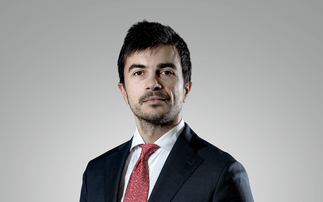Partner Insight: Fidelity Global Special Situations fund manager Jeremy Podger explains how his three-category asset allocation process is used to generate complementary sources of alpha potential while simultaneously providing a balanced overall style profile for the fund
For any global equity investor, correctly calling the markets or a specific theme is a binary game. By his own admission Fidelity Global Special Situations fund manager Jeremy Podger has never been one to identify a theme given the inherent challenges and uncertainty around timing entry and exit points.
Podger's experience of managing global equities since 1990 sees him take a different approach to investing, with a clear and consistent focus on three types of ‘investments'.
Specifically, Podger looks to combine corporate change with exceptional value opportunities, as well as unique businesses that enjoy a strong competitive position and dominate their respective niche.
"The stocks we invest in fall into one of three categories," explains Podger. "The first category is what we define as corporate change. Here we are looking for substantial and structural change in a business that has the ability to move the overall valuation of the company as well. The types of change I am talking about could be mergers, company spin-offs, disposals or those businesses being listed (or re-listed) on the stock market."
Podger describes this category as being relatively "short-term" in its outlook, with any revaluation of stocks ideally taking place over a period of 12-18 months from when he invests.
The second category that underpins the Fund's stock selection process is exceptional value. Here, Podger is willing to take a longer-term stance, investing in companies that are trading on relatively low valuations because profitability is depressed and the market has taken a short-term view of its profit potential. For Podger, the key within this category is to identify value through the potential for profits to improve (and for that improvement to eventually drive a re-rating of the shares) on a three to five year view.
In particular, he anticipates a "double effect" of better earnings and a higher valuation during this period: The final category is what Podger defines as "unique businesses or franchises" whereby a company's fundamental ability to grow over time is analysed in detail.
Podger views this three-category asset allocation process as a way to generate complementary sources of alpha potential while simultaneously providing a balanced overall style profile for the fund.
Indeed it has assisted him in successfully navigating a series of market peaks and troughs over a long investment career spanning more than 30 years. Podger's track record as a global equities fund manager has seen him outperform indices through a number of market cycles.
Click here to read the full interview and more from Podger on his approach to risk, emerging markets and changing investment cycles.











